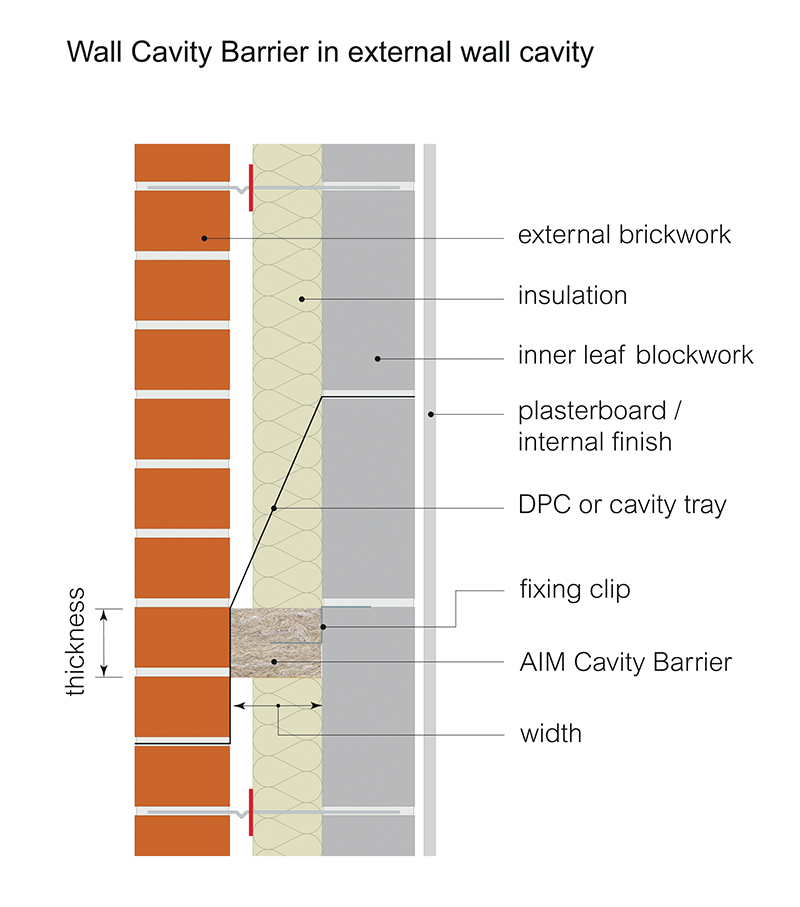- March 7, 2024
Understanding the Importance of Fire Barrier Insulation in Modern Buildings

Fire barrier insulation plays a crucial role in modern buildings by providing a level of protection that helps prevent the spread of fires and protect the structural integrity of the building. Understanding the importance of fire barrier insulation is essential for architects, builders, and property owners to ensure the safety of occupants and comply with building codes and regulations.
One of the key reasons why fire barrier insulation is essential in modern buildings is its ability to contain fires and prevent them from spreading rapidly. In the event of a fire, the insulation acts as a barrier, slowing down the progression of flames, smoke, and heat. This containment gives occupants more time to evacuate the building and emergency responders more time to control the fire, ultimately reducing the risk of injury and property damage. Without adequate fire barrier insulation, fires can quickly engulf an entire building, putting lives at risk and causing extensive destruction.
Furthermore, fire barrier insulation helps to protect the structural integrity of a building during a fire. High temperatures from a fire can weaken the structural components of a building, compromising its stability and making it more susceptible to collapse. By installing fire barrier insulation, the materials used to construct the building are shielded from the intense heat of a fire, helping to maintain the structure's strength and integrity. This not only increases the likelihood of the building remaining standing after a fire but also makes it safer for firefighters and other emergency personnel to enter and navigate the building during rescue operations.
Another crucial aspect of fire barrier insulation is its role in preventing the spread of smoke and toxic gases during a fire. Smoke inhalation is a leading cause of death in fires, and the toxic gases emitted during a fire can quickly overcome occupants, impairing their ability to evacuate safely. Fire barrier insulation helps to contain smoke and gases within the area of the fire, limiting their spread to other parts of the building. This containment not only reduces the risk of smoke inhalation for occupants but also makes it easier for firefighters to locate and rescue individuals trapped inside the building.
Fire barrier insulation is also important for compliance with building codes and regulations. Regulatory agencies and building codes require the installation of fire barrier insulation in specific areas of a building to enhance fire safety and protect occupants. Failure to meet these requirements can result in fines, legal liabilities, and even the closure of the building. By understanding the importance of fire barrier insulation and ensuring its proper installation, architects, builders, and property owners can avoid costly penalties and ensure the safety and well-being of occupants.
In addition to its critical role in fire protection, fire barrier insulation can also help improve the energy efficiency of a building. By providing insulation against heat transfer, fire barrier insulation can reduce the energy needed to heat and cool a building, resulting in lower utility costs and a smaller carbon footprint. This added benefit makes fire barrier insulation a wise investment for property owners looking to enhance both fire safety and energy efficiency in their buildings.
In conclusion, understanding the importance of fire barrier insulation in modern buildings is essential for ensuring the safety of occupants, protecting the structural integrity of the building, and complying with building codes and regulations. By providing a barrier against flames, smoke, and heat, fire barrier insulation plays a vital role in containing fires and preventing their rapid spread. Additionally, fire barrier insulation helps to safeguard the structural components of a building during a fire, reduce the risk of smoke inhalation, and improve energy efficiency. Investing in quality fire barrier insulation is a proactive step that architects, builders, and property owners can take to enhance the fire safety and overall performance of their buildings.